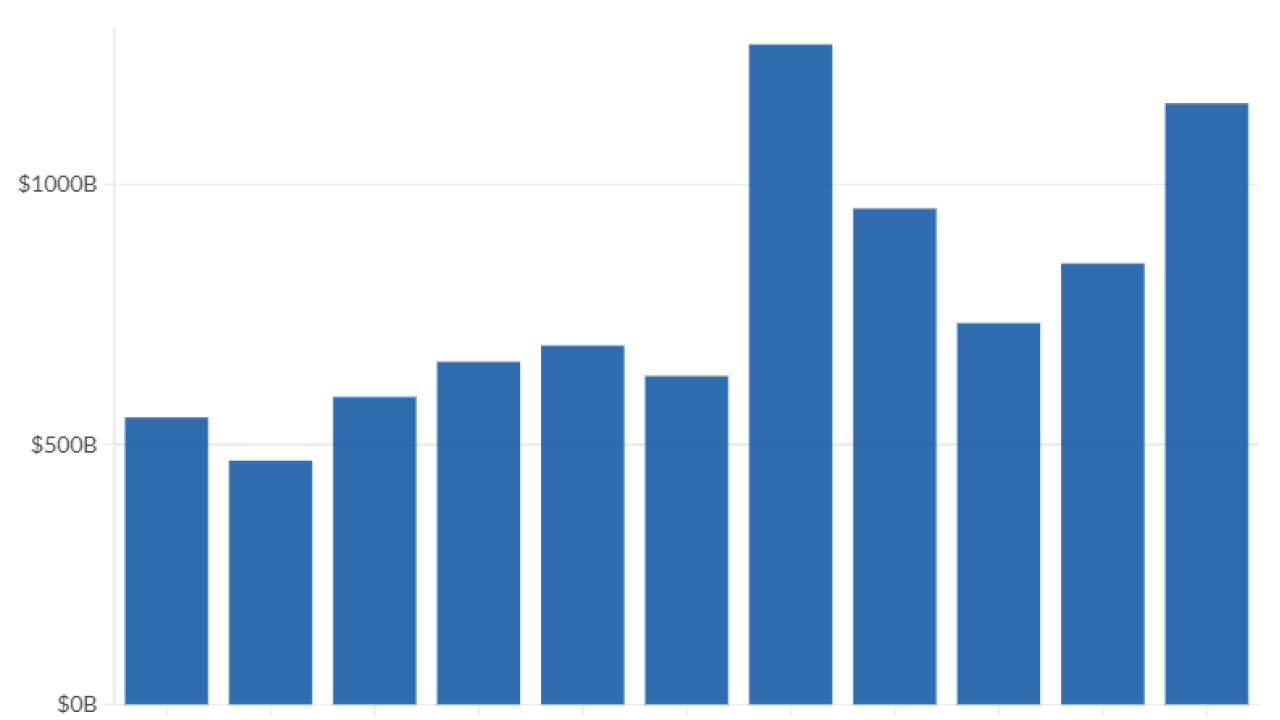When Personal Capital lowered its account minimums two years ago to $25,000 from $100,000, the firm garnered plenty of favorable press as CEO Bill Harris spoke at length about democratizing access to financial advice.
But the hybrid advice provider has raised its account minimum back to $100,000 as it finds itself on much firmer financial ground.
“Our investment minimum has historically been $100,000," Personal Capital noted in an e-mailed statement. "We temporarily lowered the minimum to $25,000 in an effort to provide world-class advisory services to more American families."
In a way, the shifting threshold mirrors the changing fortunes of the firm.
This past month, Personal Capital said it crossed the $4 billion AUM mark (growing almost 18% since the start of this year) and noted 38% of its clients had accounts with over $1 million.
When Personal Capital dropped its account minimums in November 2015, the Silicon Valley-based firm had just $1.8 billion in AUM. And it was contending with increased competition, chiefly the launch of Vanguard's Personal Advisor Services — a hybrid many industry observers said replicated Personal Capital's approach, but managed to attract over $10 billion in client assets even before its official launch.

Personal Capital also was able to distance itself from industry rumors about being for sale after a
The move to drop the account minimum served its purpose, says Michael Kitces, partner and director of wealth management at Pinnacle Advisory Group in Columbia, Maryland; co-founder of the XY Planning Network and publisher of the planning blog Nerd's Eye View.
"A temporary decrease in their minimums got them some free PR," Kitces says. "Then they reverted their minimums back to their original plan, after the free public relations benefits had dissipated. And now they’re serving who they meant to serve all along, but with better brand visibility and brand name recognition because of the free PR."
Indeed, Personal Capital says its "digital wealth management offering is best suited for clients with at least $100,000 in assets."
The firm made no indication it would stop serving clients who subscribed with less than $100,000, instead stating that it would continue to offer free consultations with an adviser for any investor using its suite of free money management tools.
Yet the move struck some industry observers though as counter-intuitive, as the digital advice market has entered a new phase of competition.
With widespread industry agreement on blending humans with an online platform, every firm either offering or developing digital advice is modeling it on that premise. The latest is from Wells Fargo, which
The expansion of hybrid platforms and bank digital advice promises big changes and fierce competition in automated wealth management.
Investors with accounts at Bank of America Merrill Edge Guided Investing will only need $5,000 to get started and pay only 45 basis points.
Personal Capital charges 89 basis points on the first $1 million under management.
As clients are increasingly able to get a similar hybrid robo experience from an established financial brand with a smaller commitment and cheaper costs, Personal Capital may face future headwinds, says Sean McDermott, senior analyst at Corporate Insight.
"Those firms will be able to keep minimums low," McDermott says. "They already have the resources and manpower in house to service clients, even if those clients aren't huge accounts."
McDermott adds that industry observers wouldn't be surprised if large financial firms engage in cost cutting competition in digital wealth management, similar to how brokerages engaged in slashing trading costs earlier this year.
"The easiest way to differentiate when there are similar services is to go cheaper," he says. "It might be harder for a consumer to compare the tax advantages one service provides over another. But just seeing a lower price point, any customer can understand that."










